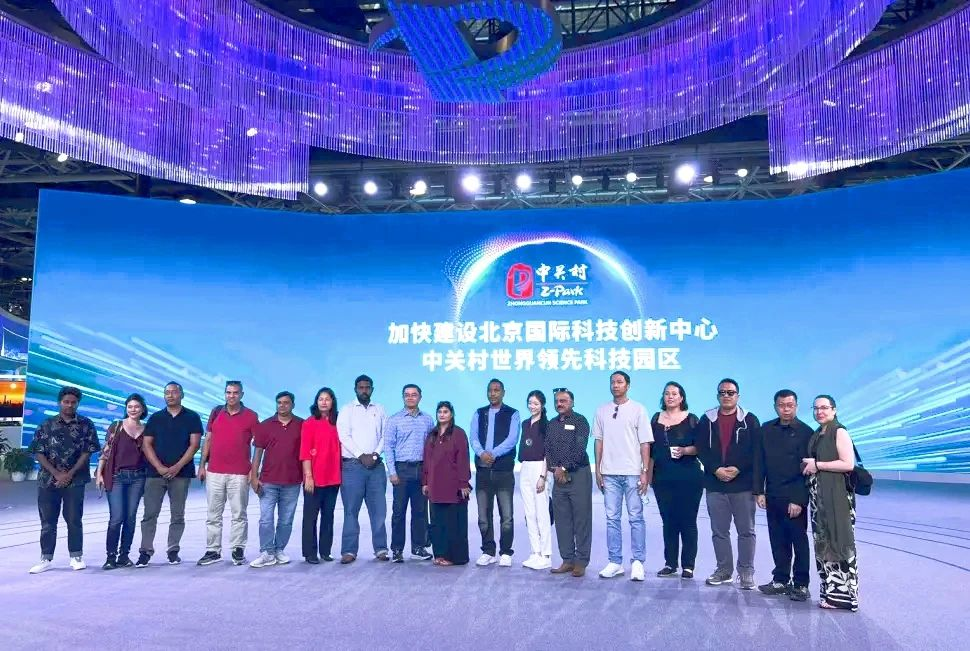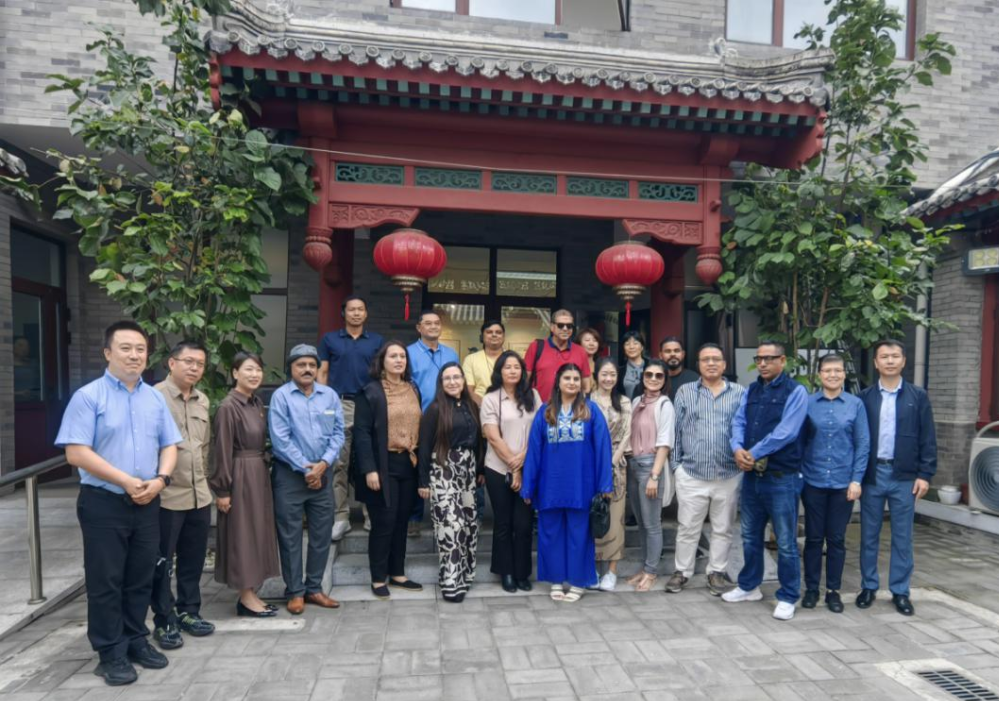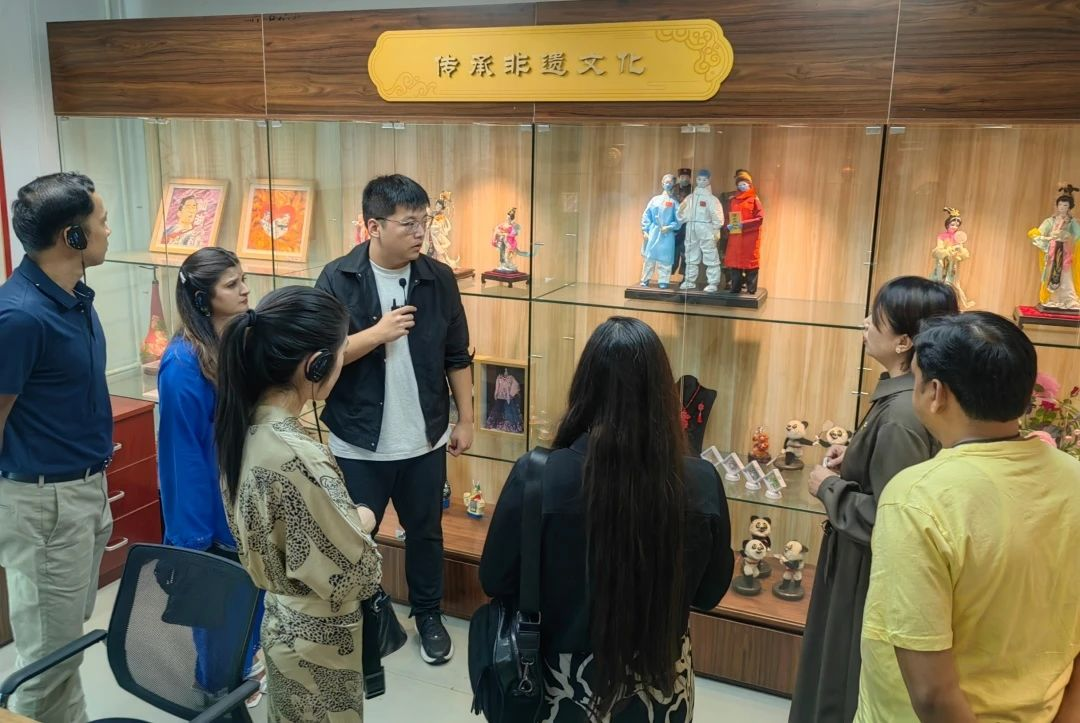At the invitation of the China NGO Network for International Exchanges (CNIE), a delegation from the Silk Road NGO Cooperation Network visited Beijing from September 25 to 26. The delegation consists of 22 representatives from non-governmental organizations (NGOs) across 12 countries, including Cambodia, Thailand, Pakistan, Spain, and Serbia. During their stay in Beijing, the delegation visited places such as Haidian District and Xicheng District to gain an in-depth understanding of the city’s technological innovation and primary-level Party building.

Visiting Zhongguancun
At the Zhongguancun Exhibition Center, delegation members lingered at booths featuring smart cities, new energy vehicles, and intelligent manufacturing, marveling at Beijing’s rapid technological advancement. A representative from the Observatorio de Política China in Spain noted that Beijing has made remarkable achievements in the high-tech sector, laying a solid foundation for its sustainable economic development.
At the Zhongguancun Software Park, the delegation members listened attentively to the introductions, gaining a comprehensive understanding of the park’s various support measures for startups. The Assistant to Vice President of the Thai-Chinese Culture and Economy Association stated that they will enhance cooperation with the software park and thoroughly learn from Beijing’s successful experience in supporting entrepreneurs moving forward.
The delegation also visited the district-based enterprise iSoftStone, where they were deeply impressed by the company’s software and digital transformation services for clients, especially its use of AI and cloud intelligence technologies to deliver more precise and efficient support. As the delegation leader, Kemreat Viseth, Board Chairman of Civil Society Alliance Forum (CSAF) in Cambodia, highlighted that Beijing’s policies and achievements in encouraging technological innovation are not only of great significance to Beijing and China, but also serve as a model for countries along the Silk Road.

Visiting Shichahai Street
In Shichahai Street, the delegation visited locations such as the conference hall of Huihai Hongfan Party-Public Service Center, the Party representative office, the Party school branch, and the business building service center. They gained deep insights into how Party building leads primary-level governance and the innovative achievements of Party building in the community, expressing high appreciation for the community governance experience and convenient services. Through multi-pronged measures, the Shichahai area has created green landscapes and improved the environment, providing the delegation with a more intuitive understanding of urban renewal.
The delegation also visited the Guo Shoujing Memorial Hall to view the exhibition themed “World Renowned Astronomer Guo Shoujing - World Heritage Grand Canal”, focusing on the historical changes of the Beijing-Hangzhou Grand Canal and Beijing’s central axis.

Learning about intangible cultural heritage
Delegation members were all delighted to experience Beijing’s unique history, culture, modern development, as well as the charm of technological innovation. They expressed willingness to play their respective roles in strengthening people-to-people ties and promoting cooperation in related fields, thus jointly pushing for practical outcomes of the “Belt and Road” initiative.
Further Reading
The Silk Road NGO Cooperation Network was initiated by the China NGO Network for International Exchanges (CNIE) as a move to respond to the “Belt and Road” Initiative, and further consolidate the strength of both Chinese and foreign civil societies by utilizing their unique characteristics and advantages. Today, over 300 organizations from China and abroad have joined the organization, including 22 members from Beijing. Delegations from the Silk Road NGOs have visited Beijing multiple times, building a bridge to effectively tell the story of the capital’s development in the new era and promote practical cooperation.


